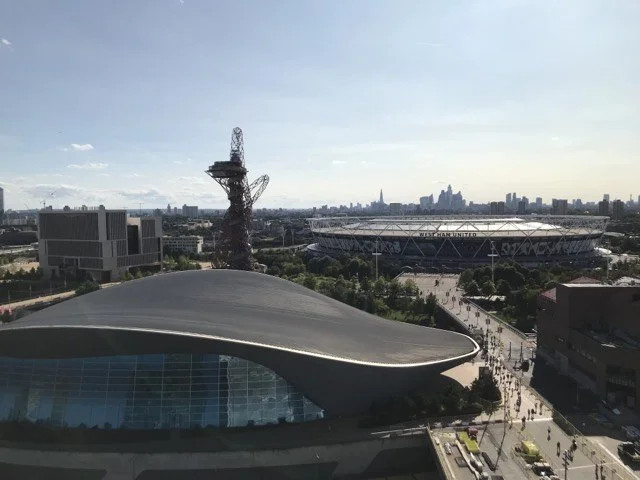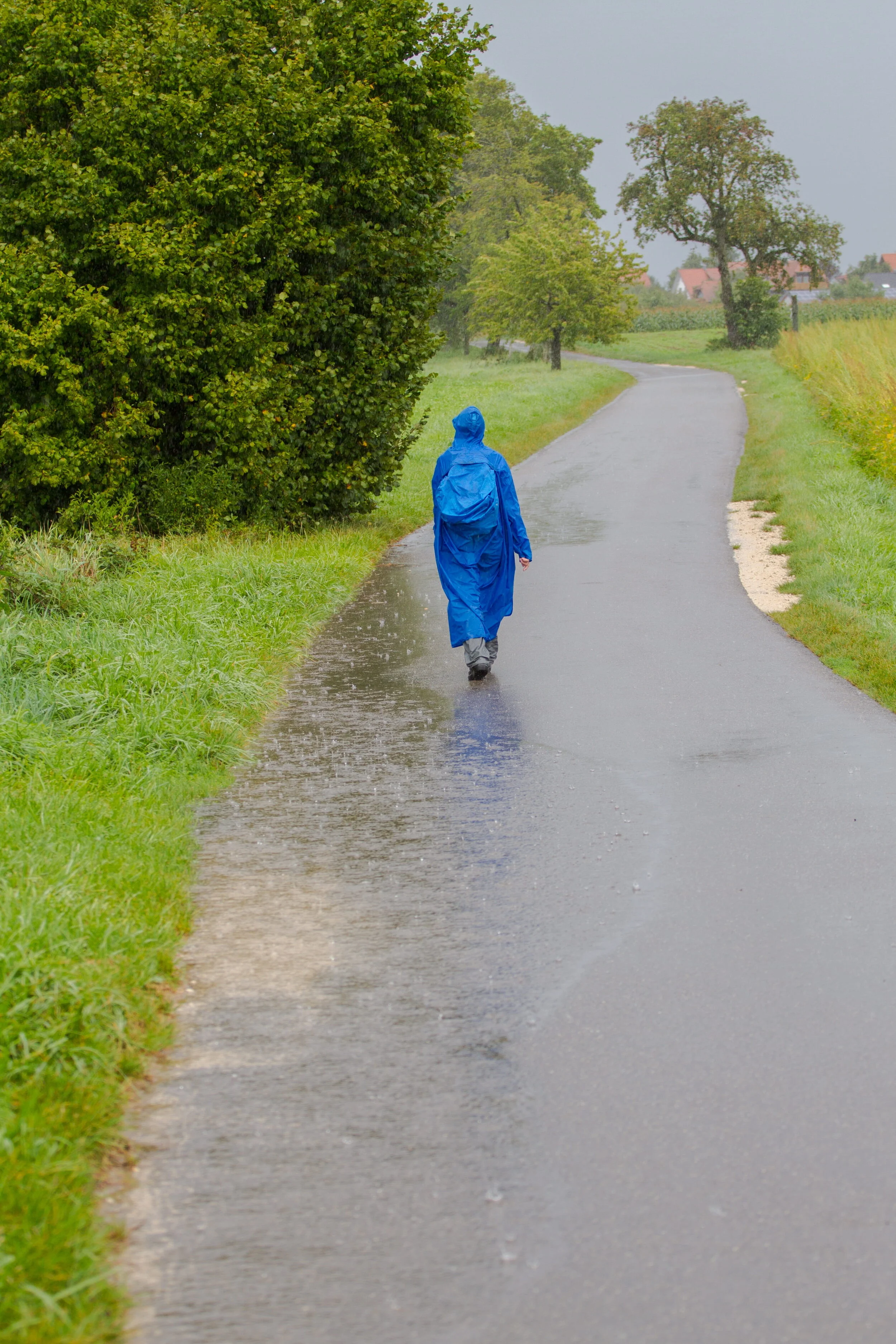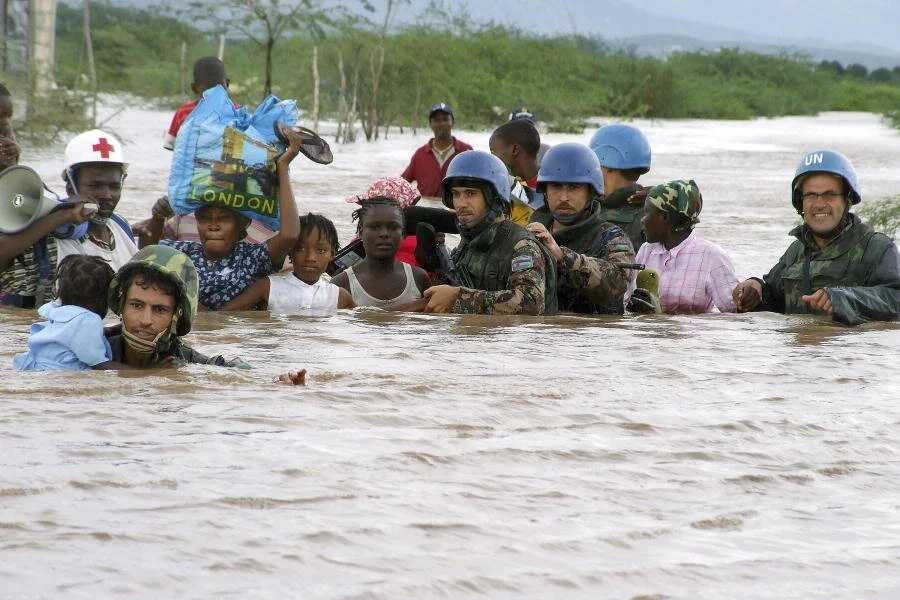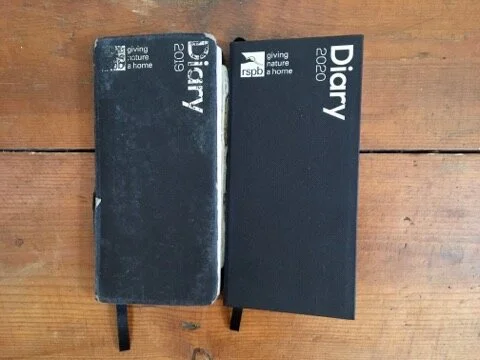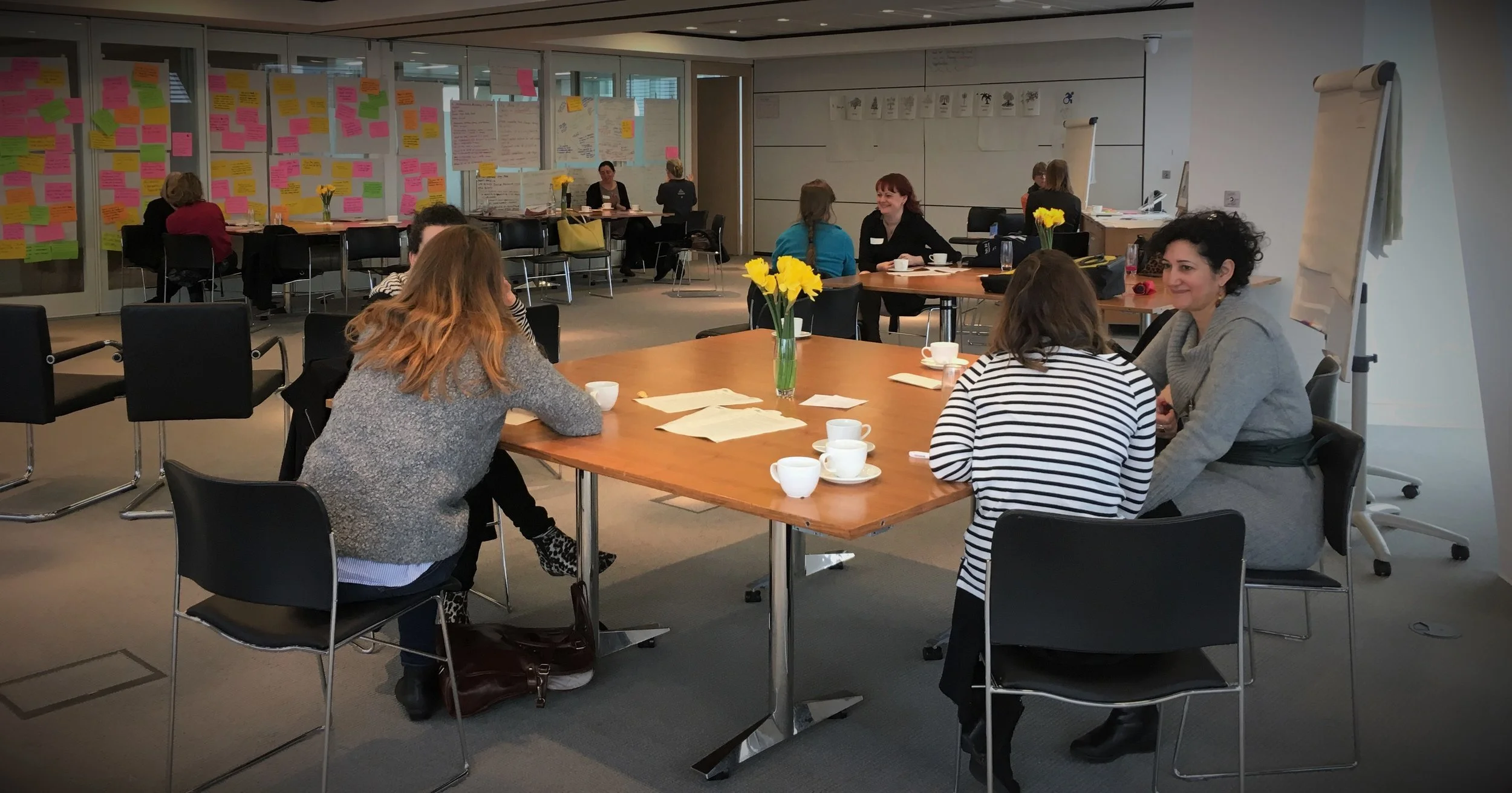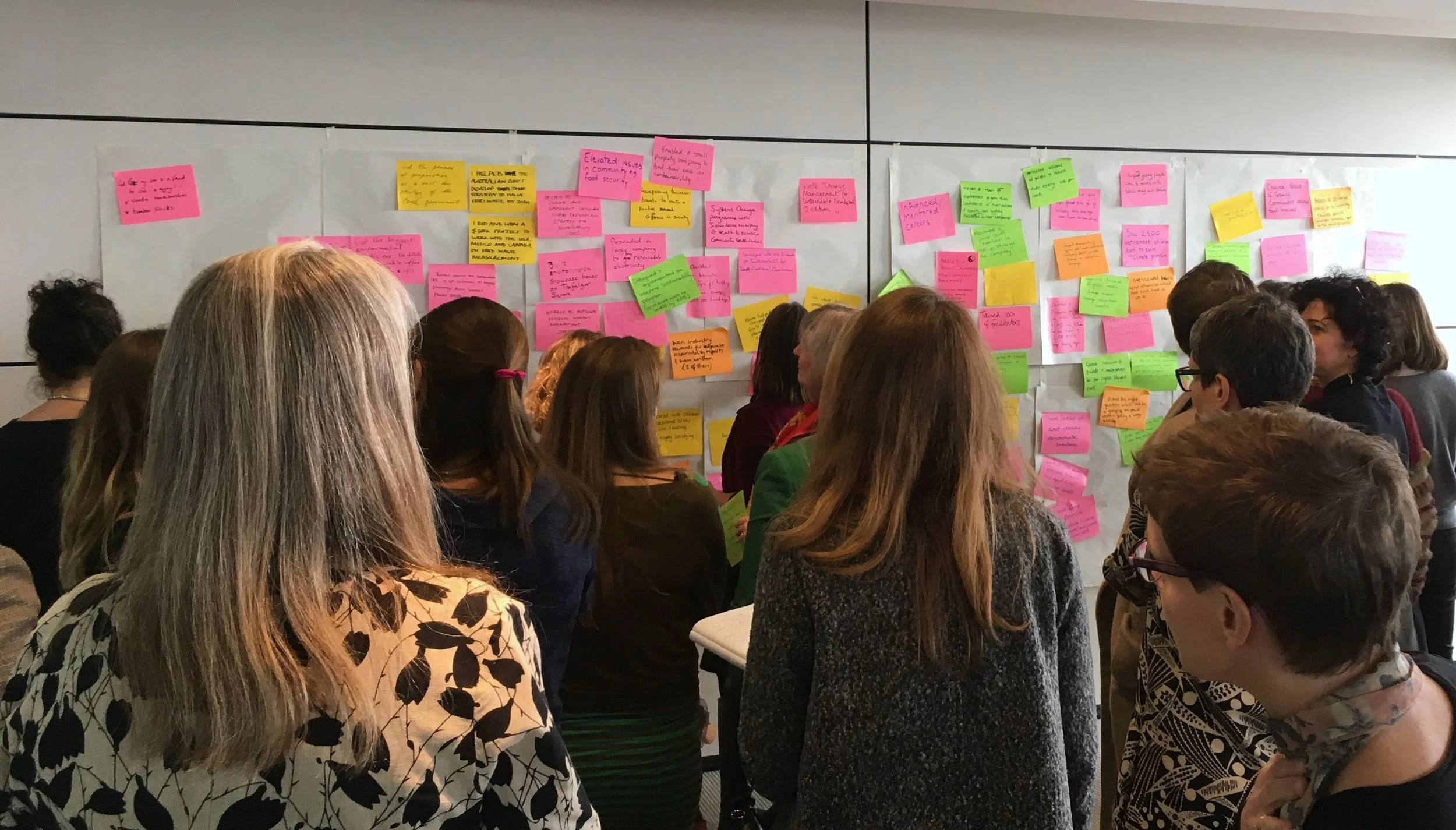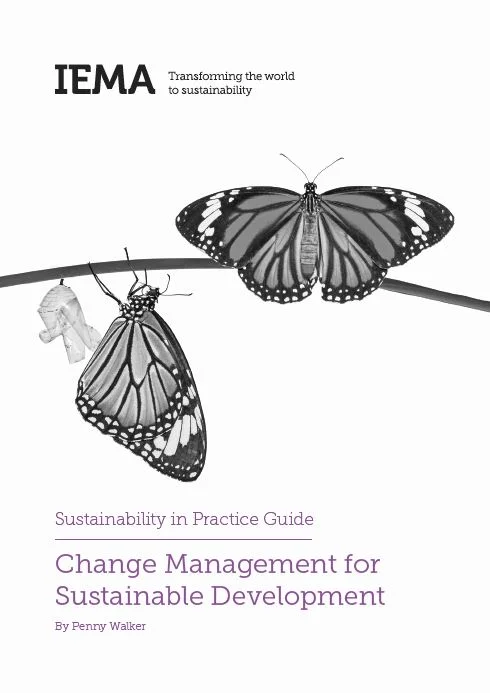Earlier this month I stood on a 10th floor roof terrace, looking out over the Queen Elizabeth Olympic Park. In front of me were the sweeping curves of the aquatics centre, the delicate frame of the London Stadium and the frankly disturbing tangle of the Orbital.
Three reframing strategies
Ever had one of those days? The dog’s been sick, there’s a mystery leak dripping through the kitchen ceiling, and just as you’re finally leaving home you discover your bike’s got a flat tyre.
Or, your beautiful project gets trashed by trolls on twitter, half the finances fall through, and your boss or client suddenly wants twice as much output in time for their end-of-year performance review.
Bad days will happen, even to the best of us. We’ll deal with them better if we have some resilience strategies up our sleeves.
Here are three ways to pick yourself up and show the day who’s boss. Read more…
Troika consulting
I explained my dilemma to the other two people in my ‘troika’ group, and then turned my back. For the next few minutes, they discussed the problem as if I wasn’t there. I heard empathy, I heard honesty. They were free to talk to each other about what I’d said without worrying about me becoming defensive, or correcting them. They also said what they’d intuited about what I’d not said. It was liberating for us all.
Taking a 'blind man's holiday'
Before ubiquitous electricity, when daylight was fading but it wasn't yet dark enough to justify lighting the candles or lamps, people would take a 'blind man's holiday'. Too dark to work, or read, this is a time of obligatory rest which is no longer part of the rhythm of our lives. How can we reclaim it?
ORID
Here is a summary of the ORID focused conversation method, as described in Change Management for Sustainable Development.
What 'might' a sustainable future look like?
I've been reading a lot of stories this year, and exploring creative writing. This has been a treat and I've seen it as an alternative to working or the news. But of course, there's sustainability and change-related learning there too if you look for it. So here's a combination of an exercise from Tim Clare's 100 Day Writing Challenge, and ideas from some of the utopian fiction and positive sci-fi (solar punk) I've been reading.
A letter to the Earth
Exploring white privilege
If you're white, you have almost certainly benefited from white privilege.
I know I have.
Recognising the specifics of our own experience of 'white privilege' is a step along the way to understanding the continuing impact today of the historical and systemic exploitation of non-European people and societies by Europeans and the societies they established in places like North America and Australia. I have been exploring my own white privilege, using a simple exercise.
Some ground rules for building trust
I’ve been working with a group of people from many different organisations who have been thrown into collaborating because of the pandemic.
They have achieved a lot, but when they took some time to reflect, they were able to see tensions which were exacerbated because they didn’t know each other very well and their ‘trust cushion’ was thin. So we experimented with some ground rules during a workshop session, all designed to help build trust.
What shall we bring with us, into the new normal?
The stories we tell ourselves about the climate emergency
The gap between what we say we want, and the way we behave, is such rich territory. We get in our own way – we make excuses for our perceived failures, blame others, or assume too much responsibility. Our internal stories are one of the ways we do this. The stories we tell ourselves about the climate emergency often come back to three strong themes.
Holding the space for climate conversations
How do you feel about the climate emergency? How do you feel about your personal contribution to emissions of greenhouse gases? What do you see in your future?
And if you’re a facilitator, or have some other role in helping other people have conversations about the climate, what do you do when strong emotions show up?
Out with the old...
I treasure this hiatus between Christmas and New Year. No urgent client work to complete, no meetings, a precious bit of breathing space to reset, catch up, look forward.
By the end of the year my diary is battered and worn. The new one holds such promise and possibility! Clean, smooth and with clear edges.
Creating a 'Thinking Environment'
Nancy Kline’s Time to Think was one of the first books I read about coaching, and it has had a profound effect on my work with groups and in one-to-one settings. Kline believes that “everything we do depends for its quality on the thinking we do first. Our thinking depends on the quality of our attention for each other”.
Here’s her guidance on how to create a holistic setting which enables people to do their best thinking.
What can I do, to calm the climate?
If the IPCC’s Special Report on climate change made you want to do something – anything – to calm the climate, swiftly followed by a sinking feeling that you just don’t know what is both doable and meaningful, and you’d rather not think about it…. You can do something meaningful! Here’s a great way to find your contribution.
Doing the work in sustainability that we want to do
Lots of the women who came along to She is Still Sustainable said that the highlight was a co-coaching exercise we ran, using a solutions focus approach. People paired up and coached each other, asking positive, future-oriented questions about the sustainability work they wanted to do. The instructions are here.
Celebrate your achievements!
One of the lovely things that we did at She is Still Sustainable last month, was to build a wonderwall of our achievements. And wow! What a lot we have achieved.
Some were very personal – surviving divorce, arranging funerals, raising children....
Some had enormous reach – training 100s of facilitators, systems change programme with Sierra Leone Ministry of Health to improve community health, part of a team delivering a sustainable London 2012...
Who gives us permission?
In a recent coaching session, my client was exploring whether they had permission to do something. And, in an uncertain and fluid situation, how they would know whether they had permission or not. What if they misread the signs?
We developed a two-by-two matrix, to sort out the possibilities.
Change management for sustainable development - 'a coach in your pocket'
Are you an environment or sustainability specialist, working to help your organisation step up to its role in bringing about a sustainable future? Want to make more of an impact? I want you to as well! Which is why I was so pleased when IEMA invited me to write a second edition of Change Management for Sustainable Development.
And when one of our peer readers said "it's like having a coach in your pocket", I was really happy, because that's exactly what I wanted it to be.
